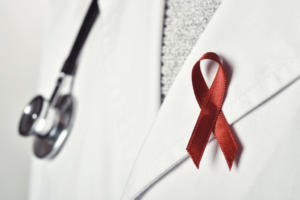 As we end 2018, I like to take a look back and review some of the good things that have happened this year. I will primarily focus on new treatments. But first a little history. In 2007, we had a banner year with three new drugs approved. These were not just any drugs but they were very important for a couple of reasons. First of all, Maraviroc was an important addition because it blocked the ability of HIV to infect blood cells in a unique way.
As we end 2018, I like to take a look back and review some of the good things that have happened this year. I will primarily focus on new treatments. But first a little history. In 2007, we had a banner year with three new drugs approved. These were not just any drugs but they were very important for a couple of reasons. First of all, Maraviroc was an important addition because it blocked the ability of HIV to infect blood cells in a unique way.
It represented a new class of drugs that previously didn’t exist called Entry Inhibitors. It was a powerful drug that didn’t have a lot of side effects. The downsides were that in order to use Maraviroc, a special test was required to make sure the virus was sensitive. This test was not cheap. Also, the drug had to be dosed twice a day, which unfortunately meant patients were less likely to take all their doses.
Darunavir was approved in the protease inhibitor class. While there were several drugs already available in this class, Darunavir was designed to be effective in people whose virus was resistant to these other drugs in the protease inhibitor class. This is very important to understand. People infected with HIV need treatment for life (until we find a cure). This could mean 40 years of treatment or more.
This means that there have to be many treatment options. When the virus becomes resistant to a particular drug that no longer works, that is a lost option. Sometimes, developing resistance to one drug in a class reduces the effectiveness of ALL drugs in that class. This is not the case for protease inhibitors. In many situations, if one of them no longer works because of resistance, another one may still






